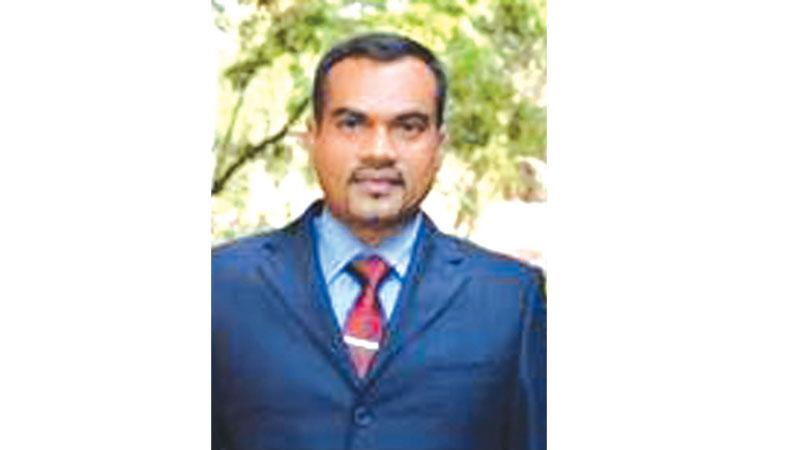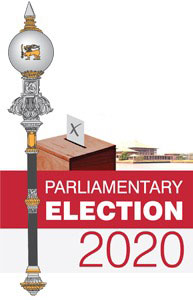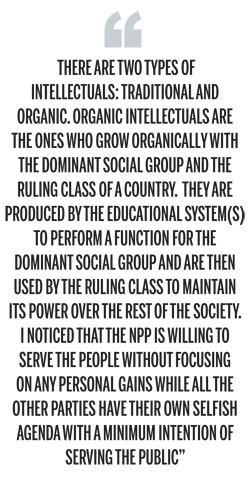
 People should use their vote as an informed consent to be a partner of the next Government that can guide the country out of the perpetual motion machine of corruption that changes the name every five years and not because they want to send someone to Parliament to replace a cogwheel of the worn-out old machine,” said Dr. Anil Jayantha Fernando who is a nominee in the National List of the National People’s Power (NPP) for the General Election.
People should use their vote as an informed consent to be a partner of the next Government that can guide the country out of the perpetual motion machine of corruption that changes the name every five years and not because they want to send someone to Parliament to replace a cogwheel of the worn-out old machine,” said Dr. Anil Jayantha Fernando who is a nominee in the National List of the National People’s Power (NPP) for the General Election.
In an interview with the Sunday Observer, Dr. Fernando elaborated the importance of voter education in a country like ours where most of the people think that a vote for anyone other than the two main parties that have governed the country for 72 years, is a waste since no one else can win.
Born second in-line in a family of four siblings hailing from Katana, Dr. Fernando has added his name to the history books of the school as the first student to gain entrance to the State University System from the Pope Poul the 6th Maha Vidyalaya at Halpe, Katana. He holds a PhD in Accounting and Finance from the Asian Institute of Technology, Thailand and is working as a senior lecturer at the Faculty of Management Studies and Commerce of the University of Sri Jayewardenepura.
Excerpts
Q: What made you decide on getting involved in politics of the country and why particularly with the NPP?
A: After seeing immoral and unethical conduct of most politicians and corrupt officials in the public sector and also a growing lack of respect for people in our society in general, I wanted to find a way to contribute to improve some of these social norms. Extremely selfish attitudes of the people mainly due to social inequalities created through 72 years of political manipulations prompted me to look into the ways of increasing political awareness of the people. There is a silent majority in every issue, including intellectuals of the society. If I may borrow the concept from Antonio Gramsci, the 19th century Italian philosopher, what we need is to understand the role of the “Organic Intellectuals” in our society.
According to Gramsci, there are two types of intellectuals: traditional and organic. Organic intellectuals are the ones who grow organically with the dominant social group and the ruling class of a country. They are produced by the educational system(s) to perform a function for the dominant social group and are then used by the ruling class to maintain its power over the rest of the society. I noticed that the NPP is willing to serve the people without focusing on any personal gains while all the other parties have their own selfish agenda with a minimum intention of serving the public.
Q: Did you have any concern about the destructive and violent history of the JVP, which is the main component of the NPP?
A: There were some when I was trying to make the decision about the best way to make my contribution to politics. But, I understood that they have made a genuine effort to learn from their mistakes and transform their ideology into mainstream politics. Besides, when it comes to moral and ethical standards, no other party can even come close to the NPP and their ideology is a close match to my understanding of what a governing entity of a country should be.
Q: What is NPP’s plan for post-Covid-19 economic recovery?
A: We will strengthen the micro and medium scale enterprises with a fiscal support from the state encouraging them to stand on their own while providing an efficient and sustainable model of economic integration to improve the revenue from major sectors, such as tourism, apparel and export. We expect the post-Covid-19 unemployment numbers to be higher than that of pre-Covid-19 period. Our main focus will be to recreate jobs with the support of all the stakeholders.
Q: What are ‘PPPPs’ and ‘Worker Coops’ mentioned in the NPP’s economic policy statement?
A: Most people are familiar with PPP (Public-Private Partnership), but perhaps, not much with PPPP which stands for Public-Private-People Partnership. We added the additional ‘P’ to stress the importance of people’s participation in this partnership. Even though the participation of public is included in PPP, more often than not, the public in those partnerships shrinks down to one or more government entities which are already in control of corrupt officials and politicians. People in general will never have a say in the decisions made in the boardrooms of such organisations.
‘Worker Coops’ means ‘worker cooperatives’ where the workers of the company also a part of the ownership. In this model, workers, not only participate in the collective decision making process but also benefit from the financial successes on the basis of their labour contribution to the cooperative.
Q: Why does the NPP say that the education system of the country is not working properly?
A: One of the major problems we see in the system is having too many administrative bodies functioning more or less independent of each other without a common agenda. We have a ministry and a department for the country. We have same structures for provinces. We have a National Education Commission, a National Institute of Education. Each one is trying to achieve its agenda. Usually the entity with a leader who has the biggest influence over the rulers of the country wins the competition.
We will introduce a holistic approach integrating administrative entities, fewer than what we have now, with a common goal of moulding a knowledgeable citizen. Our system will identify talents of students and guide them into a path where they can excel while achieving other educational goals they have set for themselves.
Q: What is your general message to the voter?
A: I would like to reiterate my earlier statement about the voter becoming an informed partner of the governing system where every citizen takes the responsibility for his/her decisions and actions. Our main goal is to reinstate human dignity in our society where each citizen understands his/her moral obligations in creating a just society protecting everyone’s right as a full citizen,irrespective of ethnicity, religion, caste, gender, age, profession and/or shortcomings of physical or mental abilities.
